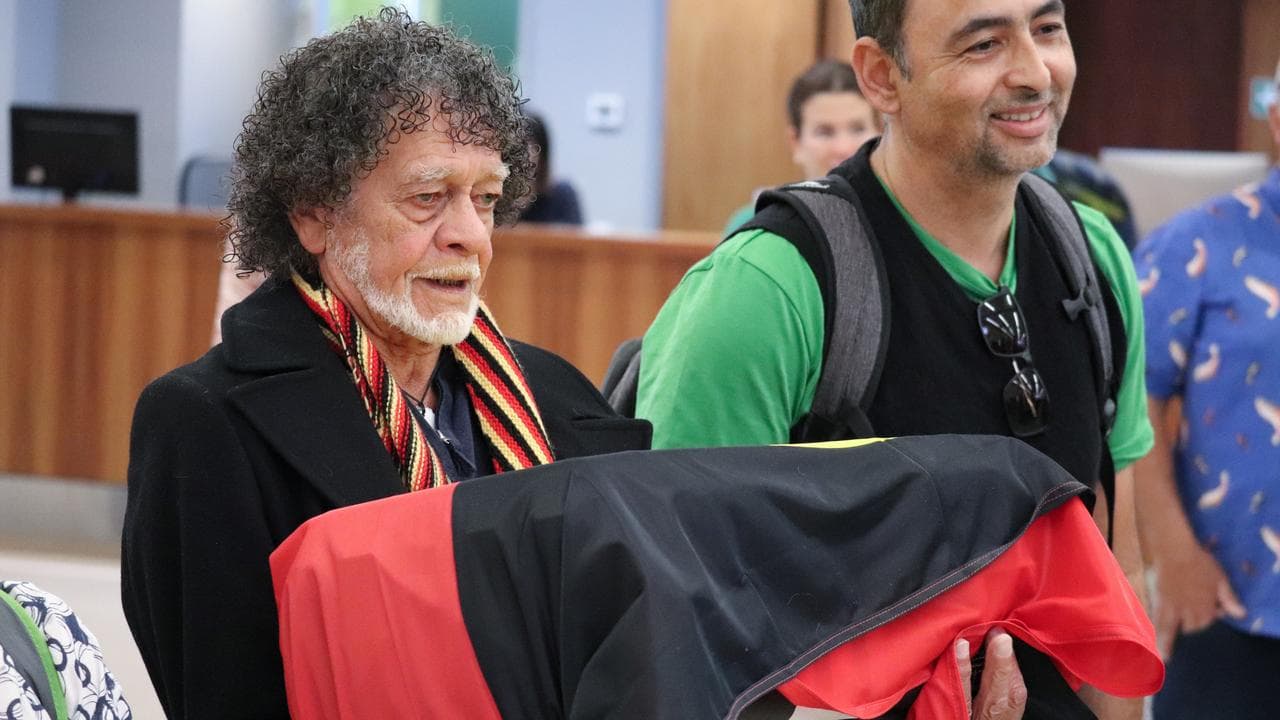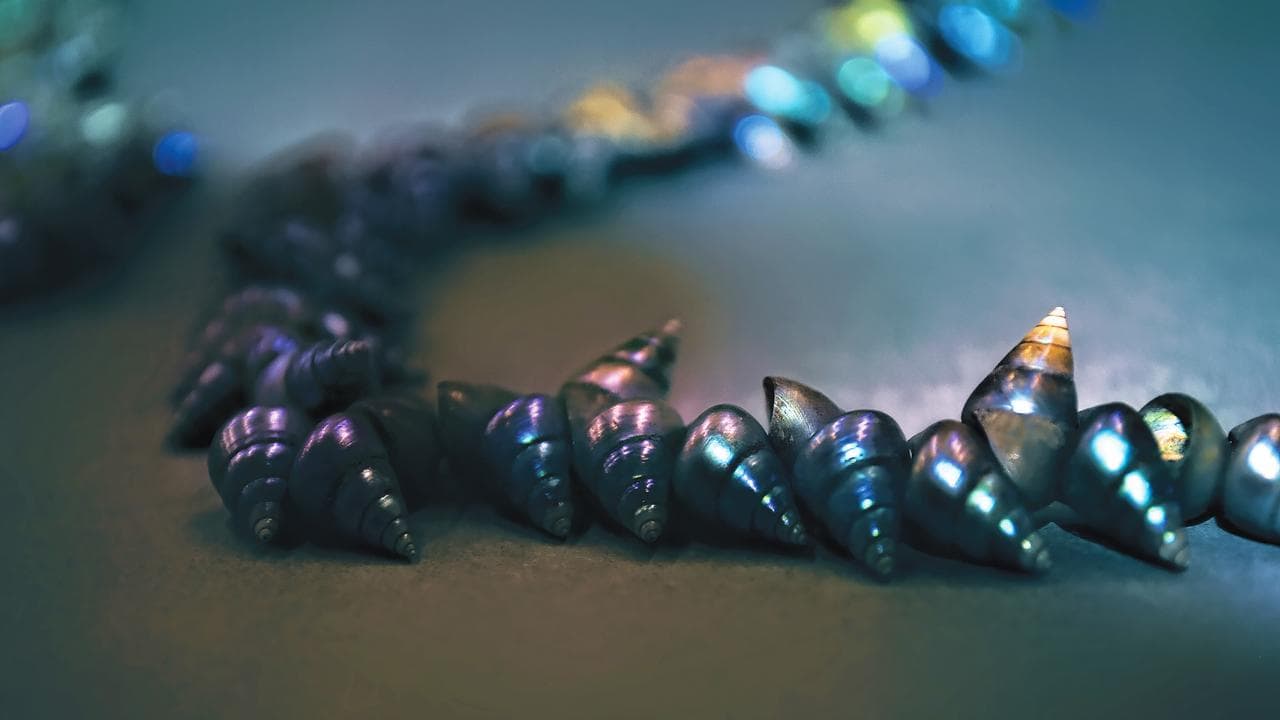
After more than 170 years at a Scottish university, the remains of a young Aboriginal man who was killed on his Country have returned home.
The skull of the unknown man was taken from Tasmania in the 1830s and had been held by the University of Aberdeen since the early 1850s.
It is understood he was part of the Big River tribe and was shot at Shannon River in the island state's Central Highlands.
Tasmanian Aboriginal Centre's Andry Sculthorpe and elder Jeanette James arrived in Hobart with the remains on Thursday.
They also brought back a shell necklace, made by a woman on a Bass Strait island in the 1880s, from the University of Glasgow’s Hunterian Museum.
The centre, which had fought for the return of the necklace since 1994, says it is the first overseas return of a Tasmanian cultural item in 27 years.
"This repatriation is a crucial moment for our community," Tasmanian Aboriginal Centre's Nala Mansell said.
"It acknowledges past injustices and allows us to bring our ancestor home to Country, where his spirit will be set free as he is laid to rest in his traditional homelands."

The University of Aberdeen contacted the centre in 2019 and proposed returning the remains.
A ceremony was held in Scotland earlier in March to hand over the skull, which had been used for teaching in the 19th and early 20th centuries.
"We are pleased that the remains of this young man can now be handed over ... for appropriate burial in his homeland," University of Aberdeen head of collections Neil Curtis said.
Details of how the university acquired the skull are limited but records suggest it was purchased after 1852 as part of a collection.
It was catalogued at the time as "Native of Van Diemen's Land, who was shot on the Shannon River".
The necklace is 148cm in length and features elenchus or maireener shells found off the coast of Tasmania.
Requests from the centre for its return were rejected in 1995 and 2002 on the grounds there was no evidence that its acquisition was unethical.
The centre has thanked both universities for their co-operation and has flagged the return of other remains and cultural items from UK institutions.
"The (centre) has been repatriating our ancestral remains since the 1970s," Mr Sculthorpe said.
"The difference now is institutions that previously wouldn't meet with us ... and outright refused to discuss returns are now saying 'let's talk'.
"We feel that is a positive step and the tide is turning."




